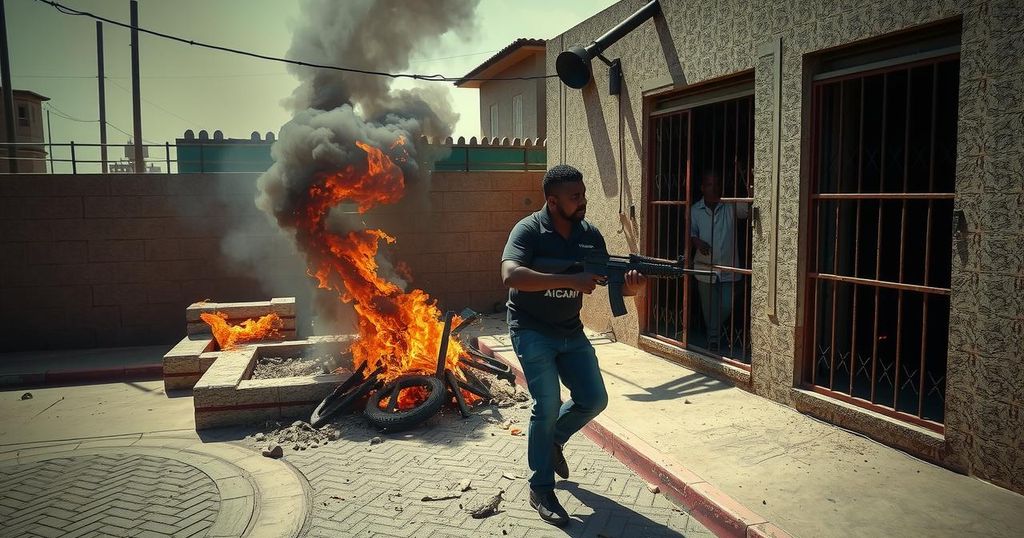In Mozambique, over 1,500 prisoners escaped amid protests against disputed presidential election results, leading to violence that has resulted in numerous deaths. The unrest follows the confirmation of Daniel Chapo’s victory by the constitutional court, sparking public outrage and additional protests. The situation has escalated with widespread looting and calls for a reassessment of the election results, highlighting a burgeoning crisis within the country.
In the wake of political turmoil in Mozambique, over 1,500 prisoners have made a daring escape from a prison in Maputo, fueled by protests against disputed election results. The unrest escalated following the confirmation by Mozambique’s highest court that the ruling Frelimo party, under President Daniel Chapo, won the recent presidential elections. The police chief reported that clashes with prison guards resulted in the deaths of 33 individuals and injuries to 15 others during the breakout. Subsequent efforts have led to the recapture of approximately 150 escapees.
Protesters descended upon the prison, allowing inmates to breach a wall amidst a tense atmosphere. The conflict surrounding the elections has since claimed at least 21 additional lives, while the city of Maputo has witnessed extensive looting, vandalism, and arson affecting Frelimo’s offices, police stations, and banks. Local residents described the atmosphere as eerily quiet on Christmas Eve, with most businesses shuttered. Anti-government activist Venâncio Mondlane, who has since fled the country, encouraged demonstrations against what he perceives as a rigged electoral process.
Despite Frelimo’s longstanding dominance since 1975, these developments signal a deepening crisis in Mozambique. With substantial public disillusionment over the electoral process, the potential for renewed civil unrest looms large, particularly as Mondlane hinted at a possible “new popular uprising” if the election outcome remains unchanged. This unrest marks one of the most severe challenges yet faced by the ruling party in Mozambique’s history.
The recent unrest in Mozambique has its roots in the political landscape dominated by the ruling Frelimo party since 1975. The disputed presidential elections held in October 2023 saw Daniel Chapo declared the victor by the constitutional court, despite claims from the opposition that the elections were rigged. The subsequent protests have highlighted a growing dissatisfaction among the population regarding electoral integrity, ultimately resulting in mass prison breaks and violent clashes. The conflict has led to widespread destruction and raises concerns about the potential for further escalations.
The situation in Mozambique illustrates the volatile intersection of politics and civil unrest, spurred by allegations of electoral misconduct. The escape of prisoners amidst protests underscores the gravity of public discontent and the potential for continued violence. As the country grapples with significant challenges to its governance, the call for accountability and reform remains a pressing issue that could shape Mozambique’s future political landscape.
Original Source: www.bbc.com






